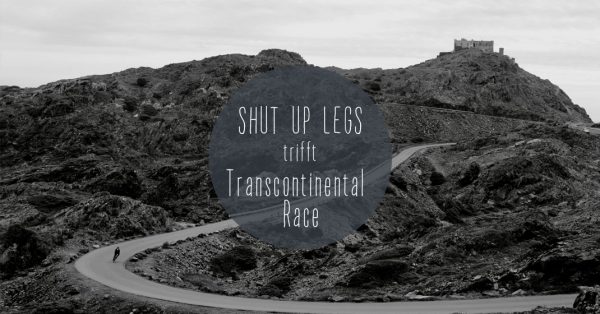Wir freuen uns sehr über einen weiteren Interviewgast: Anna Haslock. Mit dem Transcontinental Race organisieren sie und ihr Team eines der außergewöhnlichsten und faszinierendsten Randonneur-Events und führen das Erbe von Ultracycling-Legende Mike Hall fort. Wir sprachen mit ihr über das TCR, Gewinnerin Fiona Kolbinger und über das neue Transpyrenees Race, das in wenigen Tagen zum ersten Mal stattfindet.
Shut Up Legs: Hello Anna. We are honoured that you take the time for our interview, just shortly before your new event called the Trans Pyrenees Race (we talk about it later). But lets start at the beginning. Could you tell us who you are and where you live?
Anna: My name is Anna Haslock and I am the Managing Director of Lost Dot the company we set up to continue the Transcontinental Race as Mike Hall’s legacy. Mike and I were together for three years and together we ran the Transcontinental Race from 2013 to 2016. Mike set up the race in 2012, you can learn more about him and the early days here: transcontinental.cc/about
I live in mid Wales, it’s very rural and beautiful. I grew up there and introduced the area to Mike, it was where we’d set up home together shortly before his death. I still live there now, obviously I miss Mike very much but I feel comforted to know he’d found a home there.
SUL: The Transcontinental Race is a relatively new event, compared to other randonneuring events like Paris-Brest-Paris. But still it is very popular and often described as mystic and fascinating. Can you explain where this magic comes from?
Anna: A tricky question, the Transcontinental Race is a lot of different things to a lot of people and I feel that is one of its draws, it is an adventure race for everyone but you make of it what you put into it. For some it is the dramatic scenery you travel through, for others the interesting people you meet within the race and along the route. For everyone it is about pushing your limits, finding out what you are capable of, learning who you are and what you can be. It is also a community of incredibly interesting, vibrant, friendly and welcoming people. A group of people I am honoured and grateful to be a part of.
SUL: You are the Race Director of the Transcontinental Race. What are your tasks before, during and after the race?
Anna: We work on the race all year, we put a huge amount of energy into ensuring the Transcontinental Race remains at the helm of ultra-distance cycling racing. Mike was a visionary and at Lost Dot we do our best to honour his legacy as best we can. Many tasks are great fun, we love the recce work, some are mundane – but it’s all very important and for me, this job is a pleasure and an honour.
SUL: Why do you change the route every year and how do you decide what will be the future control points? Can you give us a little insight on the route planning process?
Anna: The route changes every year because it is basically a new race every year, that means it’s a lot of work but it also keeps it fresh and exciting and keeps our racers coming back for more every year. It also reinforces the nature of these races, there are so many real world issues that impact these races, weather, political issues etc etc, there is no way to really compare an ultra race one year compared to the next, the changing route of the Transcontinental Race keeps each race unique.
Our route planning mostly consists of us spending hours and hours over maps finding places we’d like to take our friends riding! :)
„Fiona“ by Angus Sung
SUL: This years winner Fiona Kolbinger was a rookie and is the first woman to win TCR. Did you expect that such a strong woman would be able to win?
Anna: Yes of course we expected a strong woman to win the Transcontinental Race, what was surprising about Fiona’s win was the ease with which she did it as a rookie. Most ultra-distance winners need to attempt a race at least once, learn from some mistakes and then go on to win. This was her first ever ultra race, and she won it easily!
SUL: Let’s talk about your newest event, the Trans Pyrenees Race #TPRNo1 which starts very soon (October 4th). What can people expect and what is different compared to the Transcontinental Race?
Anna: The Trans Pyrenees Race is a race with the same ethos and spirit, but it’s shorter with a more intense concentration of climbing and it all takes place within one geographical and cultural area, although it crosses the France / Spain border. The mountain culture of the Pyrenees is really interesting, the weather could be very challenging and the climbing is going to be considerable. It’s definitely not going to be easy!
SUL: Thank you very much for the interview Anna. We wish you all the best for the TPR and the next editions of the TCR. We will keep an eye on both events and will definitely be dot-watching.
Webseite: transcontinental.cc | transpyrenees.cc
Instagram: @thetranscontinental | @transpyrenees
Beitragsfoto: „Mike at Cap du Creus“ by Anna Haslock
